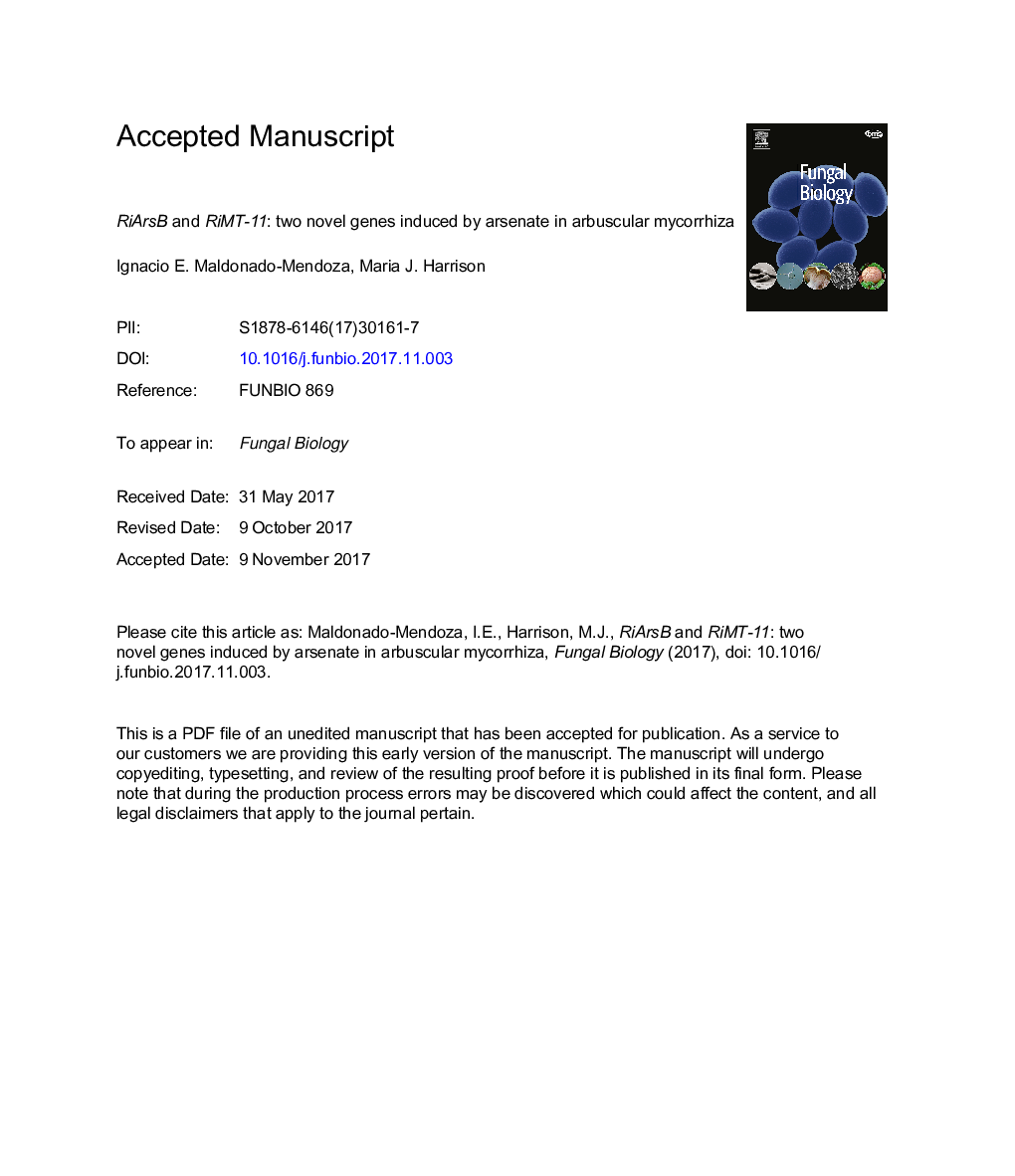| Article ID | Journal | Published Year | Pages | File Type |
|---|---|---|---|---|
| 8842783 | Fungal Biology | 2018 | 44 Pages |
Abstract
Plants associated with arbuscular mycorrhizal fungi (AMF) increase their tolerance to arsenic-polluted soils. This study aims to investigate the genes involved in the AMF molecular response to arsenic pollution. Genes encoding proteins involved in arsenic metabolism were identified and their expression assessed by PCR or RT-qPCR. The As-inducible gene GiArsA (R. irregularis ABC ATPase component of the ArsAB arsenite efflux pump) and two new genes, an arsenate/arsenite permease component of ArsAB (RiArsB) and a methyltransferase type 11 (RiMT-11) were induced when arsenate was added to two-compartment in vitro monoxenic cultures of R. irregularis-transformed carrot roots. RiArsB and RiMT-11 expression in extraradical hyphae in response to arsenate displayed maximum induction 4-6 h after addition of 350 μM arsenate. Their expression was also detected in colonized root tissues grown in pots, or in the root-fungus compartment of two-compartment in vitro systems. We used a Medicago truncatula double mutant (mtpt4/mtpt8) to demonstrate that RiMT-11 and RiArsB transcripts accumulate in response to the addition of arsenate but not in response to phosphate. These results suggest that these genes respond to arsenate addition regardless of non-functional Pi symbiotic transport, and that RiMT-11 may be involved in arsenate detoxification by methylation in AMF-colonized tissues.
Related Topics
Life Sciences
Agricultural and Biological Sciences
Agricultural and Biological Sciences (General)
Authors
Ignacio E. Maldonado-Mendoza, Maria J. Harrison,
